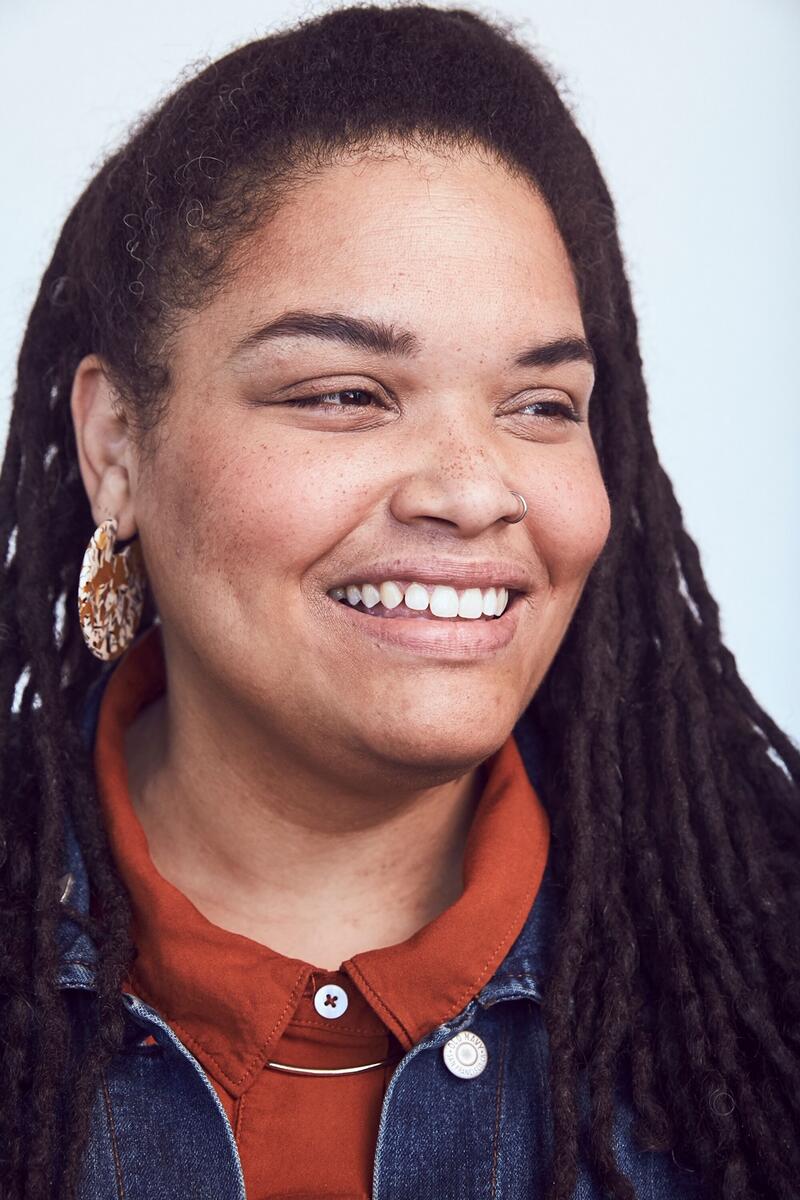Deep Cuts—The Making of an Anthology with Erin Sharkey

Hello Milkweed True Believers and Happy February! For this month’s Deep Cuts series we have a special treat for you in the form of a new interview with future Milkweed author and co-founder of the Free Black Dirt collective, Erin Sharkey! This month we take an in-depth look at a forthcoming anthology of Black archival writing as relates to the history of slavery and freedom and migration for Black life here in Minnesota and in the wider country, how we reckon with what she deftly calls “the politics of nature.” It was an honor to sit a spell with Erin’s enormous vision for Blackness, history, the future, and what this anthology can and should mean to us, to all of us!
Julian Randall: So in this anthology Black writers will be responding and writing towards archival artifacts in the aftermath of the Great Migration and even further back! I love everything about this as a project of imagination and response, so let’s begin at the beginning: how’d you come up with this brilliant project?
Erin Sharkey: The seed for this project was planted several years ago when I lived and worked for a time on an urban farm in Buffalo, New York, learning to grow food, living in a rich vibrant community. During that time, I became fascinated with natural life growing in the midst of a city—the plants, animals, pests, people, elements, and weather. I started to think about how we are driven by natural rhythms even in places we have been taught are unnatural.
I am interested in the politics of nature—who owns it, does it need to be tamed, where is it, what role does it play in our lives, are we natural? I think that so often the images we are fed about nature have this colonial conquering energy—folks climbing to the top of a mountain alone and planting a flag—but I think that that story is old and wrong and problematic.
Too often Black people are left out of nature stories. The state has worked to distance Black people from nature in our imaginations and in practice. Think about the sundowner laws that enforced curfews to exclude Black folks from communities or the Jim Crow–era laws that made travel dangerous for Black adventurers through many areas of our country or the ways government relegates Black communities for the dirtiest industrial uses or redlining and racial covenants, designed to designate the least desirable areas to Black and Brown communities.
I am interested in evidence of the long-standing relationship of Black folks to nature. The ways we have stewarded the land, the ways we are reclaiming relationships disrupted by slavery or displacement. The archive provides this evidence.
JR: What’s one element of combining writing and archival work that you wish you were invited to speak on more freely and honestly?
ES: We talk about archival work as preservation work primarily, but I have found a great deal of grief in the work as well, particularly when it comes to artifacts of Black memory. Archival work is tied to power. The agendas of institutions and the resources allotted to collecting are driven to maintain power. Who has the power to collect matters, and the priorities and predilections of the people charged with curating collections often leave out important materials. So much evidence of Black life and achievement has been lost to history.
As a writer, it has been exciting to dig into archives to drive my research, and to think about the significance of objects that are there and the importance of what is not there. And that is where imagination comes in, in the reclamation of the items not collected and the insistence of our humanity there especially.
JR: How did you arrive at knowing that you wanted to approach this as an anthology project?
ES: I think a project like this benefits from multiple perspectives. I dreamt of having writers consider their own experience and its relationship to evidence of another experience in another time in order to emphasize that these relationships aren’t new or a fad. I wanted the collection to feature work that is unified because of a shared theme or subject, but also writing that is connected via region or landscape. The choirs of voices will show a multiplicity of experience as well, from long-lasting to brand new.
JR: This anthology will be deeply connected to a lineage of Blackness and the natural world. What to you is most enticing about the future of Blackness’s relationship with the natural world, and how is that connected to the works these authors will be speaking back to?
ES: The future? Well, in a way I think this project invites readers to think about the enduring relationship Black folks have had and will continue to have to the natural world. It is time to imagine a future where our relationships to nature reflect more equity and less oppression, where our continued stewardship is honored and the ways our relationships to nature have been disrupted violently need to be healed as well. To insist on the relationship of Black people to nature backward in time using archival evidence, and connecting that evidence to our lived experience in the present, is to make space for these relationships going forward.
I also think that intimate knowledge of nature, a (re)connection with natural ways of knowing, is essential for our survival. We will need them to live into the future. And to forge a future that is hospitable to life.
JR: If you could design a dream course for this anthology to be a foundational text for, what is it?
ES: Oh, that’s fun! I think a course that encourages participants to create their own archive of a natural happening from their life or a natural place important to their lineage would be really exciting. It could feature research using a digital search tool like Umbra Search African American History (umbrasearch.org), which is an aggregate of digitized materials from over 1000 collections across the country, based at the University of Minnesota. I think that an essential component for the course would be an exploration into the history of museums and their ties to colonization and a look into the ways museums are addressing this legacy.
JR: How did you know Milkweed Editions was the right press for this project?
ES: Milkweed Editions is a press that has published so many titles that have made me think about nature, and our relationship to it, in new ways, and I was thrilled to think about how this work will join that conversation. I was also happy to work with a press in my community, to have access to the press in the development of this project.
